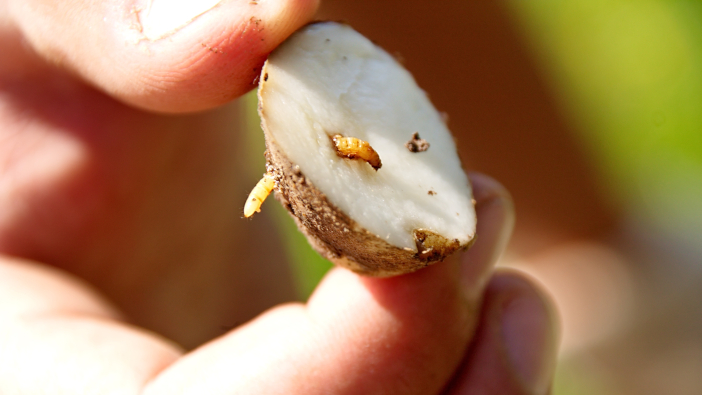Findings from Fera Science’s project, Enigma I – Wireworm IPM, are now leading to a new phase of collaborative research.
Climate changes have created more hospitable conditions for wireworms, and now organisations are invited to join the next stage of research as funding partners.
Adam Bedford, Enigma collaborative projects director at Fera Science, says: “Building on three years of partner-led R&D, new participants will have exclusive access to our Enigma I findings so far, which have filled longstanding gaps in knowledge on wireworm lifecycles and damage patterns, and helped model the risk the pest poses in future.
“Our second phase of wireworm research is focused on understanding wireworm at a local level, equipping partners with tailored guidance on sustainable wireworm control to help minimise crop losses.”
Each partner will receive a bespoke risk assessment based on the crop type, rotation, location and other risk factors, along with recommendations to help reduce wireworm population.

Dr Larissa Collins, lead scientist on the Enigma I project and entomology programme manager at Fera, explains:
“Leveraging key outcomes of our wireworm research so far, we’ll be working on producing a replicable model that partners can use to help identify the potential wireworm risk and tailor control methods across different growing sites, as part of an integrated pest management strategy.
“The results of this project come at a crucial time for the industry with reports of the pest continuing to increase across the country.”
She adds that upcoming research will include analysis of cover cropping and non-chemical control methods, including beneficial predator insects.
Adam concludes: “Partners will be able to take away practical solutions that are immediately applicable to their businesses – and as co-funders, have genuine influence over the project’s outcomes.
“We would urge any organisations with an interest in protecting the arable/fresh produce supply chain not to miss out with involvement in this project.”


